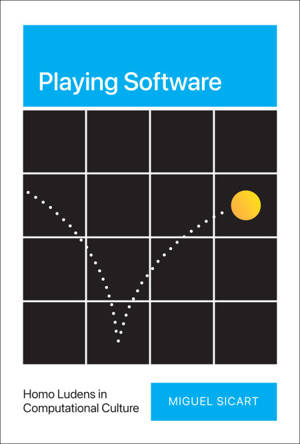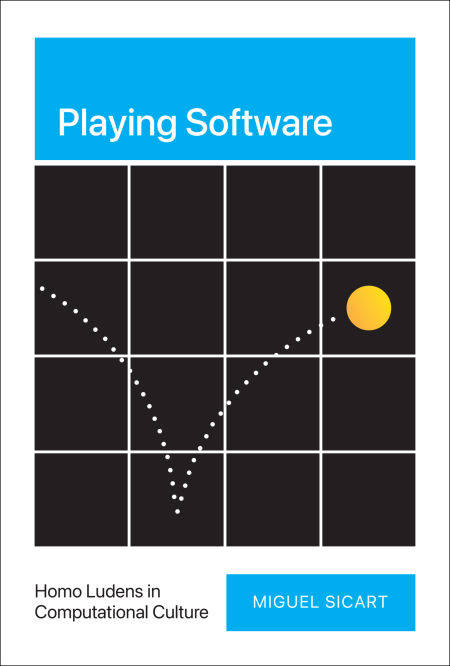
- Retrait gratuit dans votre magasin Club
- 7.000.000 titres dans notre catalogue
- Payer en toute sécurité
- Toujours un magasin près de chez vous
- Retrait gratuit dans votre magasin Club
- 7.000.0000 titres dans notre catalogue
- Payer en toute sécurité
- Toujours un magasin près de chez vous
24,59 €
+ 24 points
Format
Description
The play element at the heart of our interactions with computers—and how it drives the best and the worst manifestations of the information age.
Whether we interact with video games or spreadsheets or social media, playing with software shapes every facet of our lives. In Playing Software, Miguel Sicart delves into why we play with computers, how that play shapes culture and society, and the threat posed by malefactors using play to weaponize everything from conspiracy theories to extractive capitalism. Starting from the controversial idea that software is an essential agent in the information age, Sicart considers our culture in general—and our way of thinking about and creating digital technology in particular—as a consequence of interacting with software’s agency through play.
As Sicart shows, playing shapes software agency. In turn, software shapes our agency as we adapt and relate to it through play. That play drives the creation of new cultural, social, and political forms. Sicart also reveals the role of make-believe in driving our playful engagement with the digital sphere. From there, he discusses the cybernetic theory of digital play and what we can learn from combining it with the idea that playfulness can mean pleasurable interaction with human and nonhuman agents inside the boundaries of a computational system. Finally, he critiques the instrumentalization of play as a tool wielded by platform capitalism.
Whether we interact with video games or spreadsheets or social media, playing with software shapes every facet of our lives. In Playing Software, Miguel Sicart delves into why we play with computers, how that play shapes culture and society, and the threat posed by malefactors using play to weaponize everything from conspiracy theories to extractive capitalism. Starting from the controversial idea that software is an essential agent in the information age, Sicart considers our culture in general—and our way of thinking about and creating digital technology in particular—as a consequence of interacting with software’s agency through play.
As Sicart shows, playing shapes software agency. In turn, software shapes our agency as we adapt and relate to it through play. That play drives the creation of new cultural, social, and political forms. Sicart also reveals the role of make-believe in driving our playful engagement with the digital sphere. From there, he discusses the cybernetic theory of digital play and what we can learn from combining it with the idea that playfulness can mean pleasurable interaction with human and nonhuman agents inside the boundaries of a computational system. Finally, he critiques the instrumentalization of play as a tool wielded by platform capitalism.
Spécifications
Parties prenantes
- Auteur(s) :
- Editeur:
Contenu
- Nombre de pages :
- 184
- Langue:
- Anglais
Caractéristiques
- EAN:
- 9780262373173
- Date de parution :
- 13-02-23
- Format:
- Ebook
- Protection digitale:
- Adobe DRM
- Format numérique:
- ePub

Les avis
Nous publions uniquement les avis qui respectent les conditions requises. Consultez nos conditions pour les avis.






